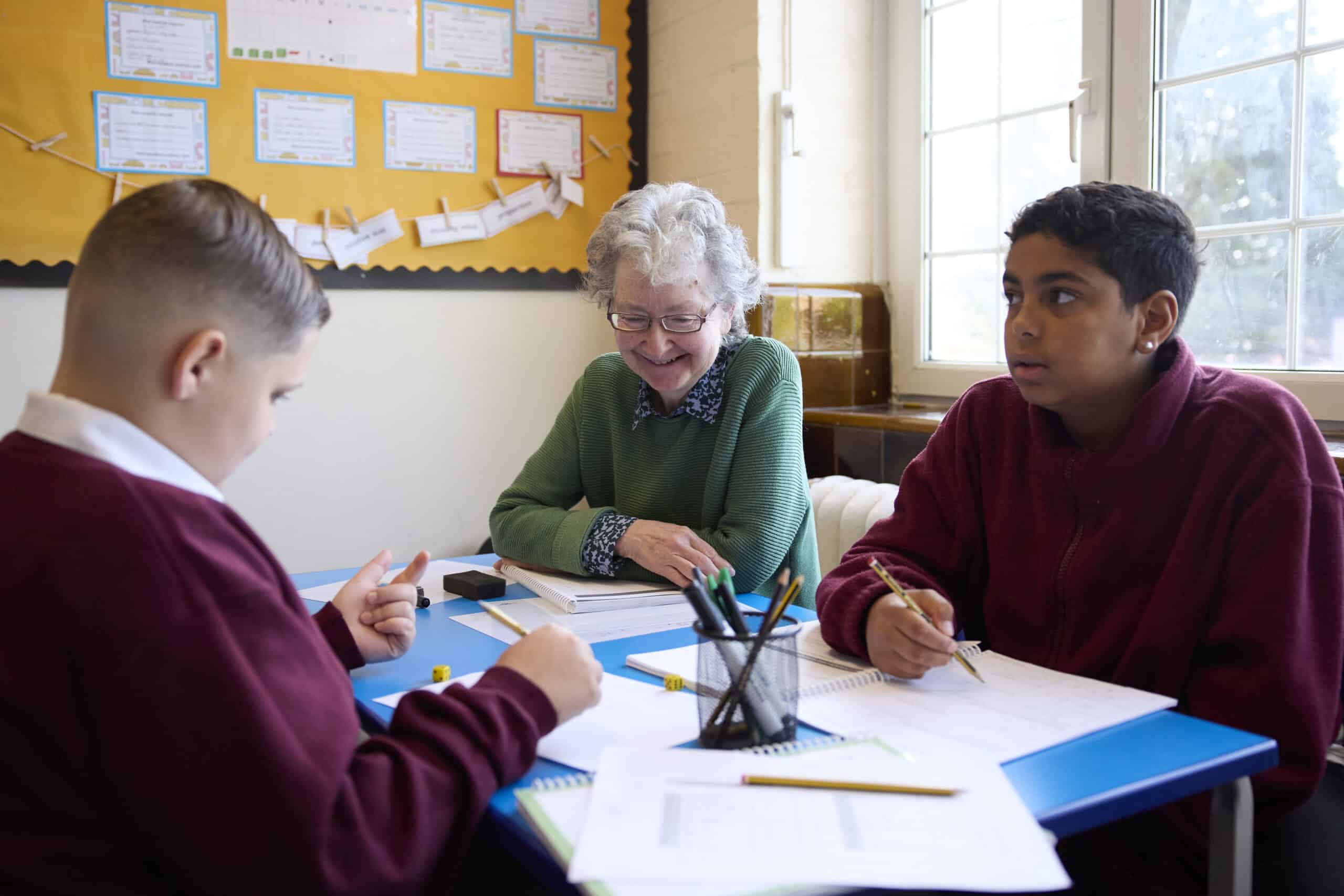
Curriculum, training and quality
At Action Tutoring, we’re committed to providing pupils with high-quality impactful tutoring. We equip our volunteer tutors with the curriculum and training to empower them to do this.
We pride ourselves on our evidence-based approach to supporting pupils, using baseline assessments and progress checks to monitor the impact our tutoring is having.
PARTNER AS A SCHOOL
Curriculum
Our Curriculum team creates resources which are built on an evidence-based approach, reflecting current educational research and established pedagogy.
Our specialist Curriculum Leads for English and maths are fundamental to this, bringing a wealth of knowledge from their experiences as lead practitioners in schools.
We currently have a portfolio of ten tutoring workbooks; you can take a look at some samples below.

Training
All our tutors attend initial tutor training run by qualified teachers. This covers safeguarding, working with young people and the Action Tutoring resources. Our online tutors receive further compulsory training to equip them for the virtual classroom.
Tutors have access to a library of 10+ additional training modules on skills including behaviour management, modelling and addressing different learning needs, as well as live webinars on common tutoring scenarios and how to deliver our English and maths activities with maximum impact.

Quality
We care that tutoring has impact and that means quality is at the heart of what we do. We have robust quality assurance processes in place to provide insight into the great work of our tutors, indicate areas where they could further develop, and help us measure our impact. We also continually review these processes to evaluate the results and ensure their efficacy.
Our most recent Quality Report can be found here.

Diversity in the curriculum
Diversity, equity and inclusion (DEI) are important for making our tutoring resources impactful and engaging for pupils. DEI objectives are part of our success criteria for our resources. For English:
- We have been diversifying the range of authors in our workbooks.
- We use evidence from the education and publishing sectors to help us consider any stereotypes and prejudice arising in texts, including historical texts.
- We think critically about which texts to include, and how to support our tutors and pupils when engaging with them.
For maths:
- We have been diversifying the names of people and places in our workbooks.
- We’ve looked at how our word problems are phrased (to avoid things like stereotypes and binary gender categories).
- You can read more here.
‘Sometimes reading can be the barrier to reaching other subjects, such as history, geography and science. Once you break down that barrier, it opens up the whole curriculum for our children.’
Jenny, Deputy Headteacher at Walkergate Community School in Newcastle




